The first round of the 2025 Panda Cup ended with a big surprise, when U22 China lost to U22 Vietnam right at home in Chengdu. This match not only disappointed Chinese fans but also sparked many controversies about the performance of the country's young players.

The starting lineup of U22 China in the 0-1 loss to U22 Vietnam (Photo: Sina).
Sina newspaper commented that U22 Vietnam has become a formidable opponent of U22 China when the young team of the billion-people country has not won in the last four matches: “In the opening match, U22 China went through 90 minutes of intense competition with U22 Vietnam. Coach Zheng Wei's team lost 0-1, with the goal coming in the 81st minute. This was the fourth consecutive match that China did not win against Vietnam (2 draws, 2 losses), proving that the Southeast Asian representative is becoming a formidable opponent at the youth level.
The match was watched live by the new head coach of the Chinese national team, Shao Jiayi, and his colleagues. However, the performance of the U22 players left him unsatisfied.”
Sina also pointed out two main reasons for the defeat: “Despite the absence of key players such as Wang Yudong and Kuai Jiwen, U22 China still showed good ball control, controlling more than 50% of the ball possession time and making six shots, one more than their opponents. However, the poor ability to take advantage of opportunities and the lack of concentration in the defense made the home team pay the price. According to experts, the two main reasons for the defeat were the strikers wasting opportunities and the defense making serious individual mistakes.”
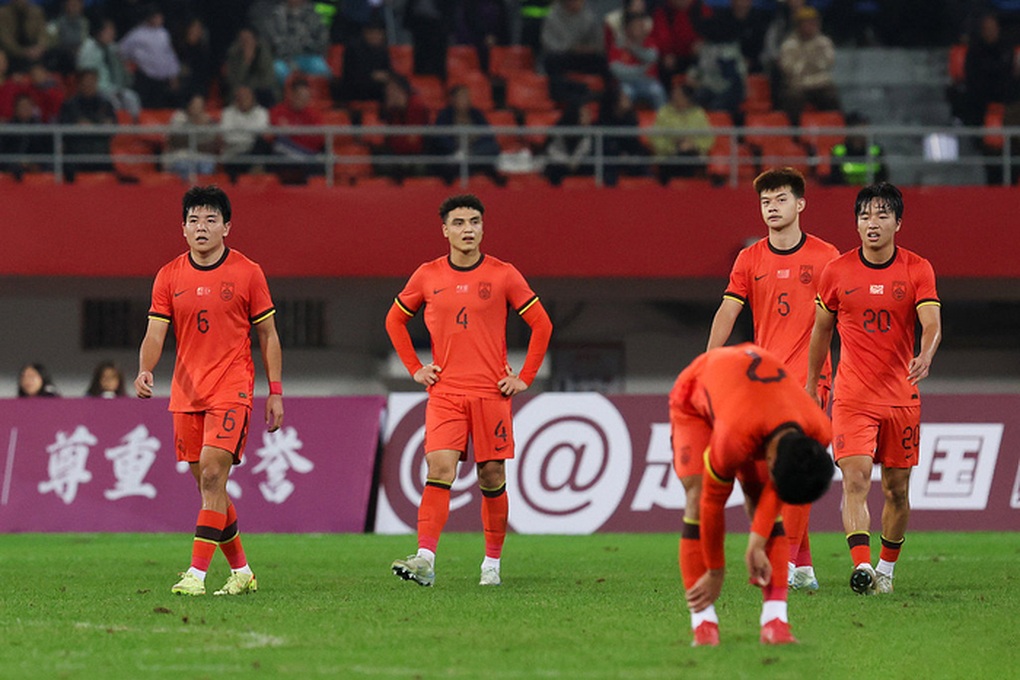
Liu Haofan (number 5) was strongly criticized, he is also the captain of China U22 (Photo: Sina).
From the reasons for the failure, Chinese media pointed out the three players who played the worst and may be removed from the training list by coach Shao Jiayi in the future:
“Striker Baihelamu was the first to be criticised after missing two good chances in the 28th and 51st minutes, despite being in good positions. Once again, Baihelamu showed that he only plays well against weak opponents and often "disappears" when facing strong teams. However, that is not surprising, because Baihelamu is clearly the type of player who "has great awareness but rudimentary technique".
Left-back Wang Shiqin made a serious mistake in the situation that led to the goal. As a defender, Wang Shiqin's performance in this match was disastrous. In previous matches, he had a history of scoring own goals. Although he did not directly score a goal in this match, it was no different. Wang Shiqin has always been known for his strong playing style, but in reality, he was somewhat reckless and lacked the necessary meticulousness.
Center back Liu Haofan was the one who contributed to Wang Shiqin's mistake in the goal. That move was the result of "coordination" between two players: first, Liu Haofan failed to block the cross, then Wang Shiqin passed the ball to the opponent to finish. Liu Haofan made more than one mistake in this match. In the 85th minute, he pushed a U22 Vietnam player from behind in the penalty area. If the referee had not been biased, the Chinese team could have lost 0-2.
In conclusion, Sina commented: "Despite the 0-1 defeat, Chinese experts believe that this is a good opportunity for the Chinese U22 coaching staff to recognize the weaknesses that need to be overcome, especially when this generation of players is expected to be the core of the national team in the future, aiming for the 2027 Asian Cup and the 2030 World Cup. Coach Shao Jiayi is said to conduct a serious review of the team after the tournament to prepare for the long-term campaign."
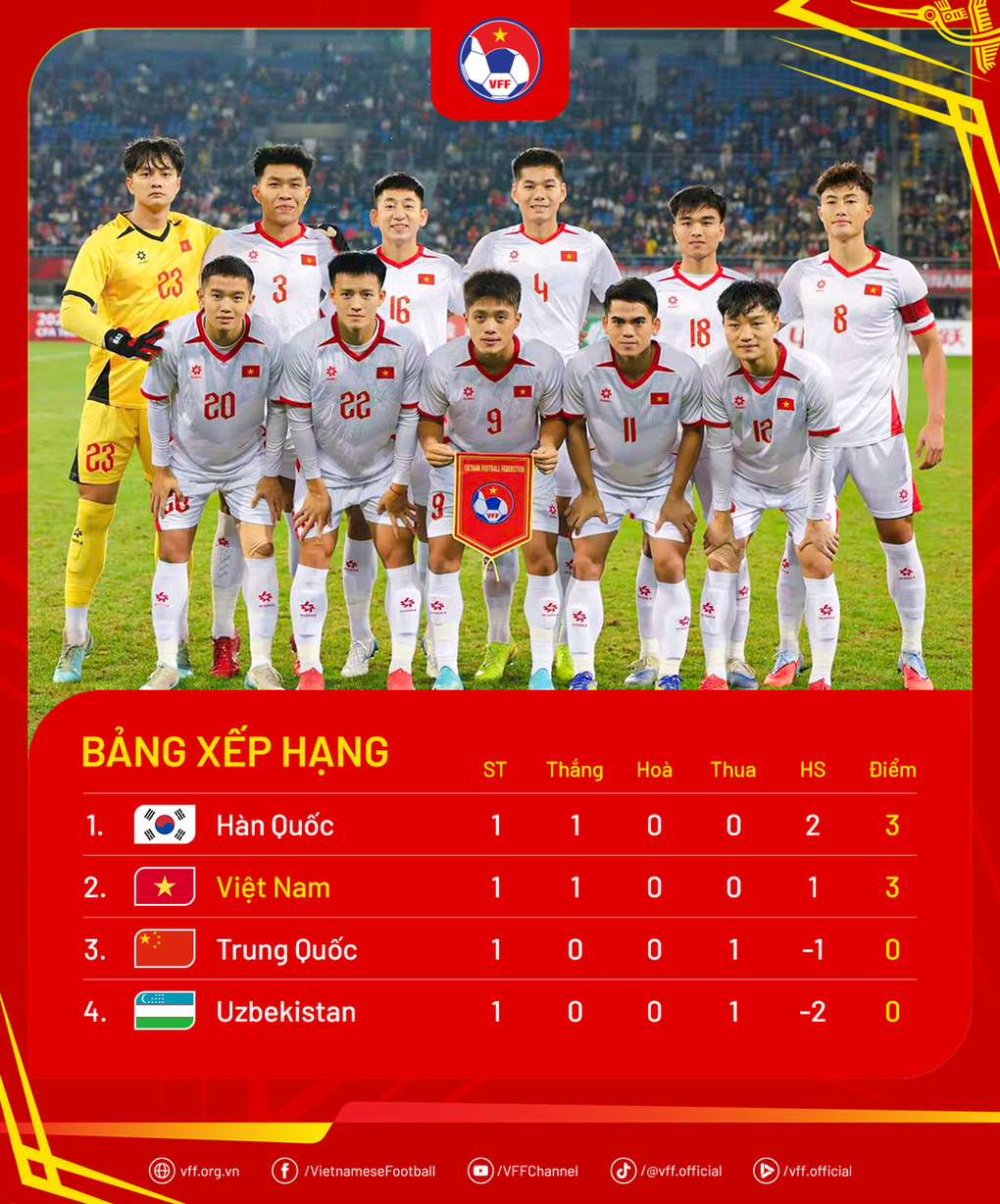
Source: https://dantri.com.vn/the-thao/truyen-thong-trung-quoc-ke-toi-3-cau-thu-sau-tran-thua-u22-viet-nam-20251113185639082.htm







![[Photo] Deep sea sand deposits, ancient wooden ship An Bang faces the risk of being buried again](https://vphoto.vietnam.vn/thumb/1200x675/vietnam/resource/IMAGE/2025/11/13/1763033175715_ndo_br_thuyen-1-jpg.webp)
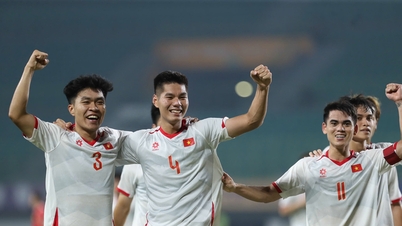




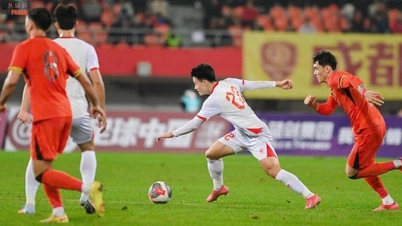
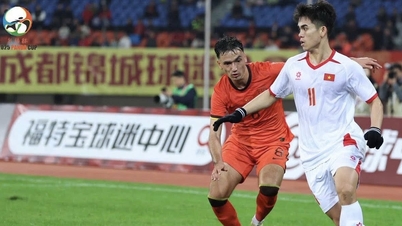

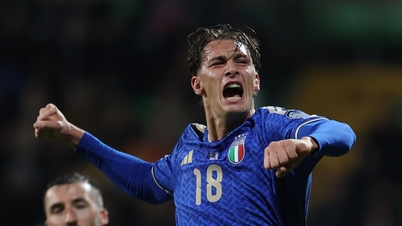
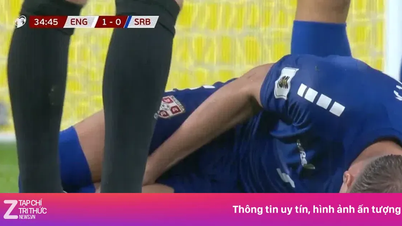

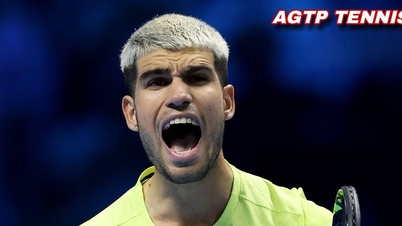
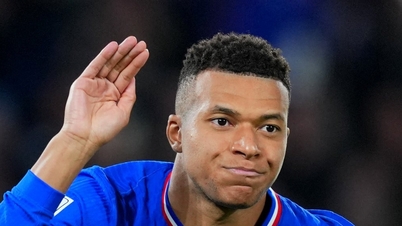
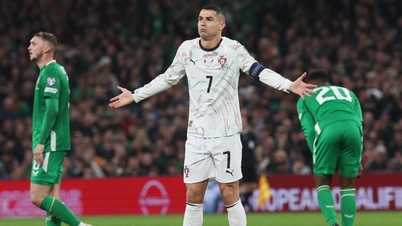
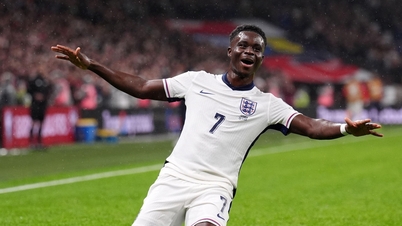




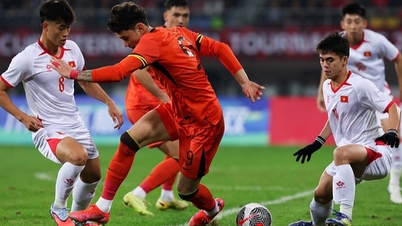
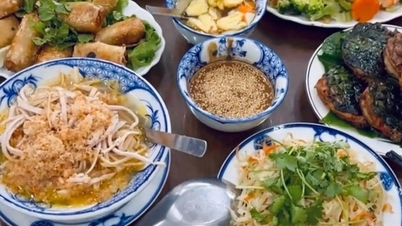
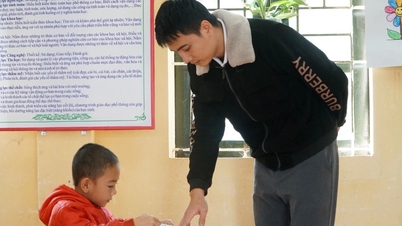
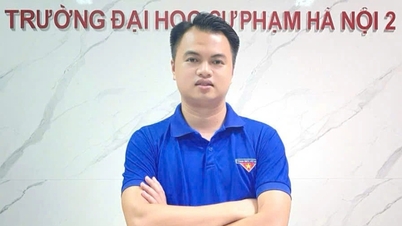

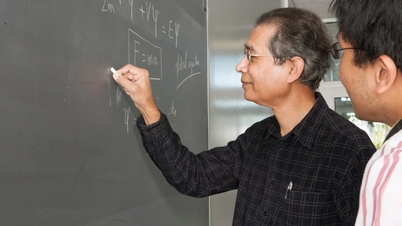



































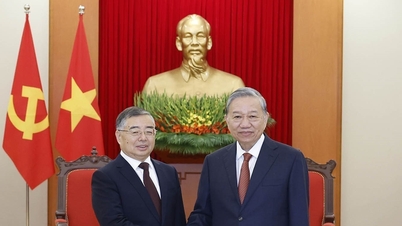
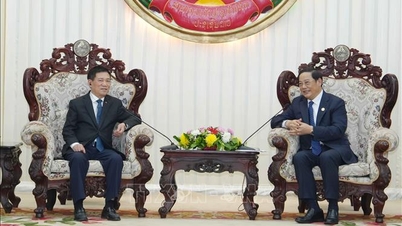
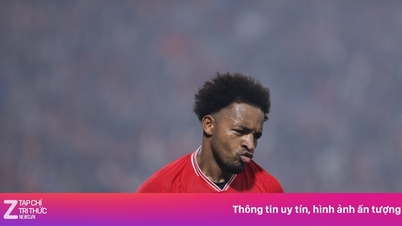





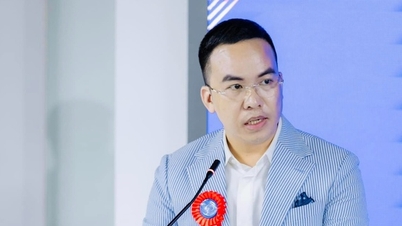
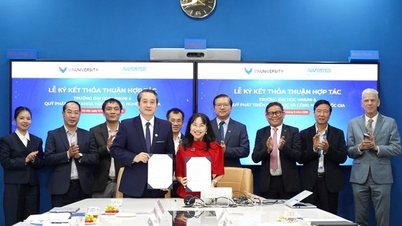

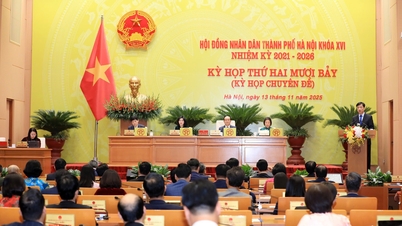

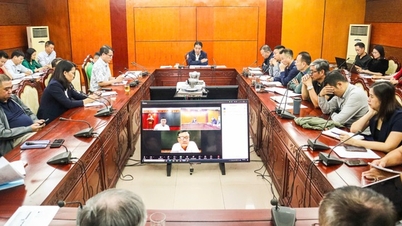

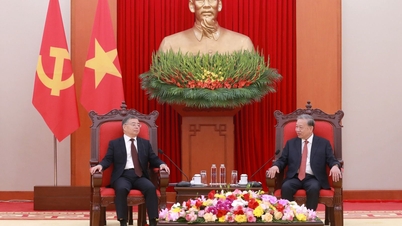




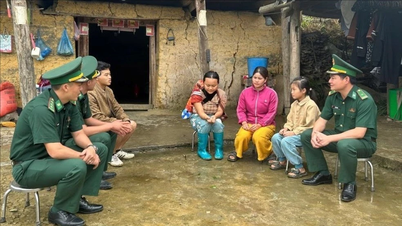



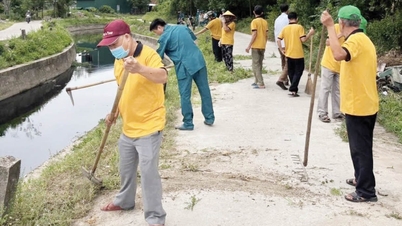

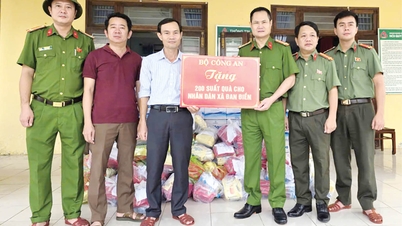




![Dong Nai OCOP transition: [Article 3] Linking tourism with OCOP product consumption](https://vphoto.vietnam.vn/thumb/402x226/vietnam/resource/IMAGE/2025/11/10/1762739199309_1324-2740-7_n-162543_981.jpeg)







Comment (0)